Köln Wreckage / Spotifyckd
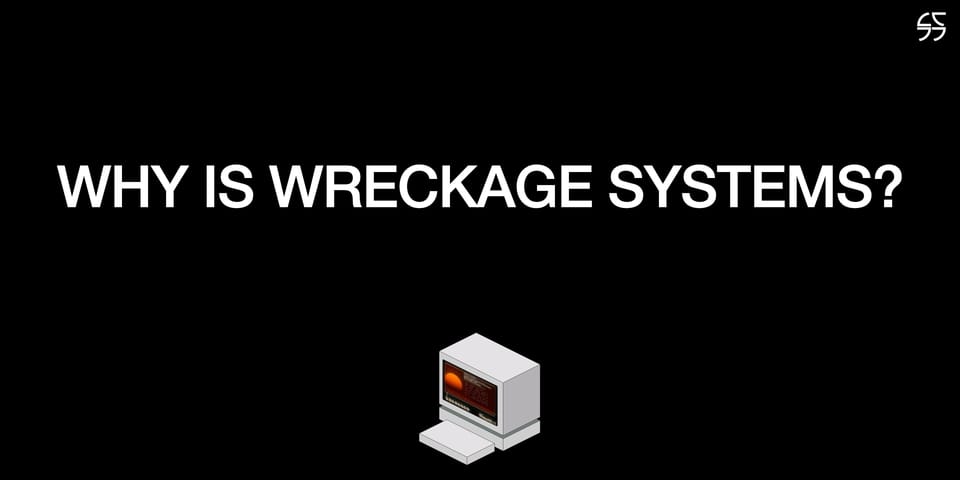
I did my Wreckage Systems talk at Soundtrack Cologne the other day. I'm not sure if there will be any opportunity for me to do this talk again, so thought I'd share a few of the slides here.
First I introduced 65LABS for anybody who didn't know what it was.
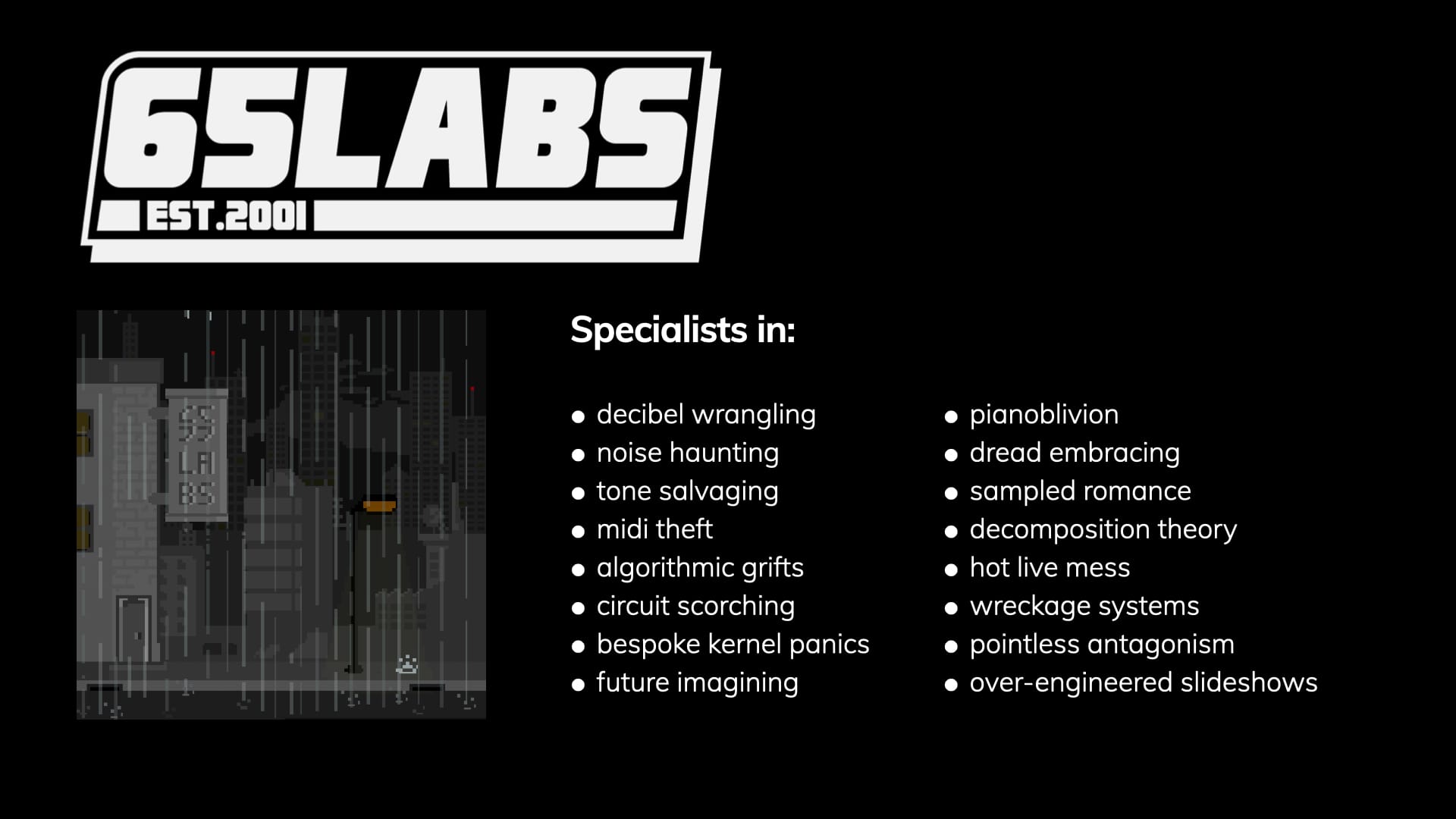
Then moved on to a sophisticated critique of Spotify.
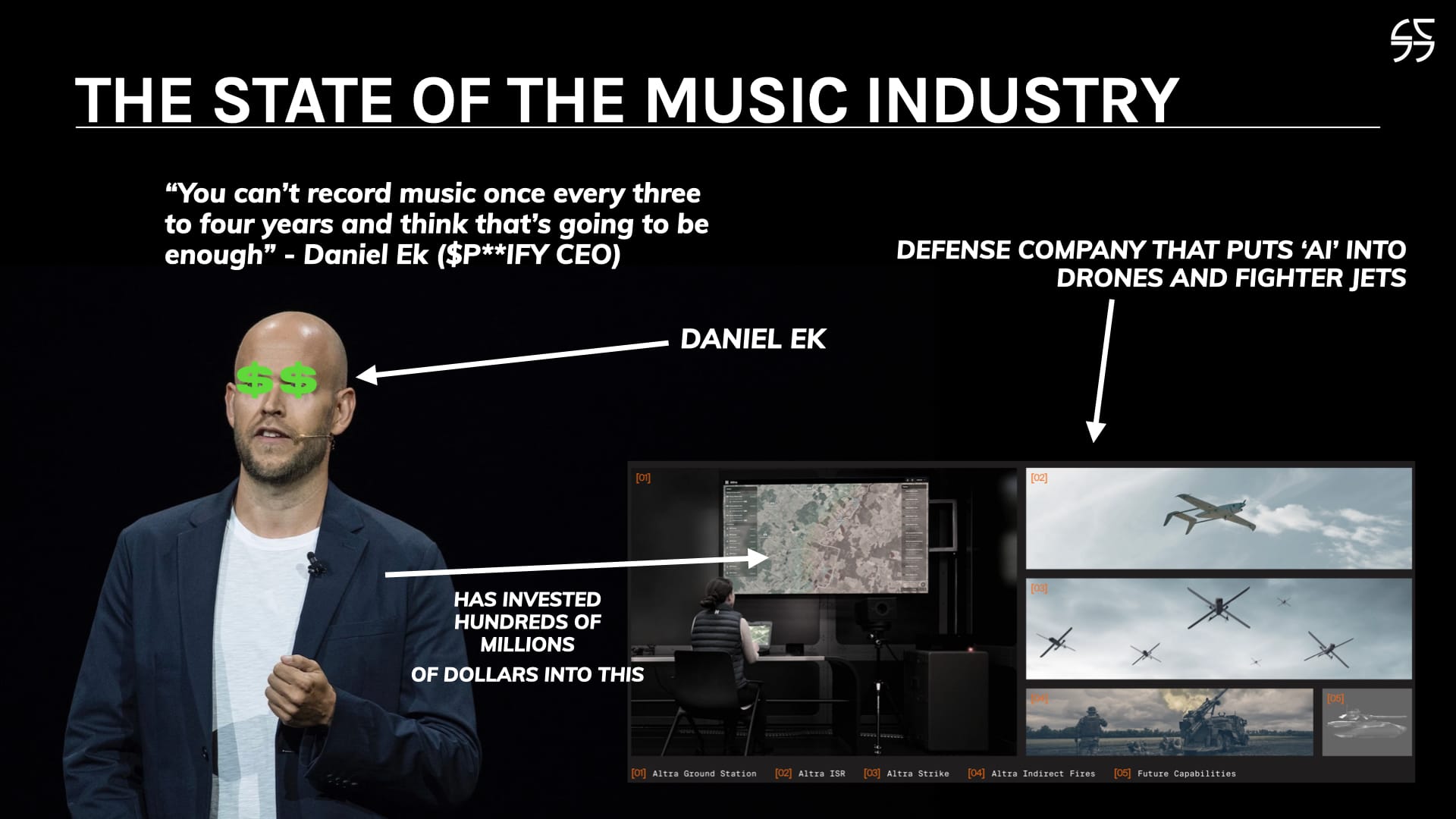
Over the last couple of days I was also finally reading Mood Machine: The Rise of Spotify and the Costs of the Perfect Playlist and I smashed through the whole thing in a kind of despairing fugue state. I had made the above slide before reading it, having long been of the opinion that Spotify is terrible and is literally destroying music. Now I am out the other side of the book, I realise I had nevertheless vastly underestimated how bad Spotify is. Not just for music, musicians and music lovers, but for humanity in general. So much so I might become one of those annoying people who starts telling other people that they should quit Spotify. Sorry.
As the slide says, Daniel Ek has indeed invested $100,000,000+ in a weapons company. It's a bit like he saw that old Godspeed You! Black Emperor artwork for Yanqui Uxo that shows the thinly-veiled connections between the music industry and military industrial complex and he wanted to one-up it by removing all the veils entirely. This particular company that Ek is so fond of giving money to and raising money for puts AI in drones and fighter jets. Presumably it's the same flavour of surveillance AI that Spotify uses to (often incorrectly) surmise lots of things about people and use that data to put them into reductive, arbitrary categories. Except instead of those categories being what kind of music people might like, it's whether those people get to have bombs dropped on them or not. Nice one, Daniel.
So around this slide I was mostly complaining about the state of the music industry. How was Wreckage Systems designed to critique this?
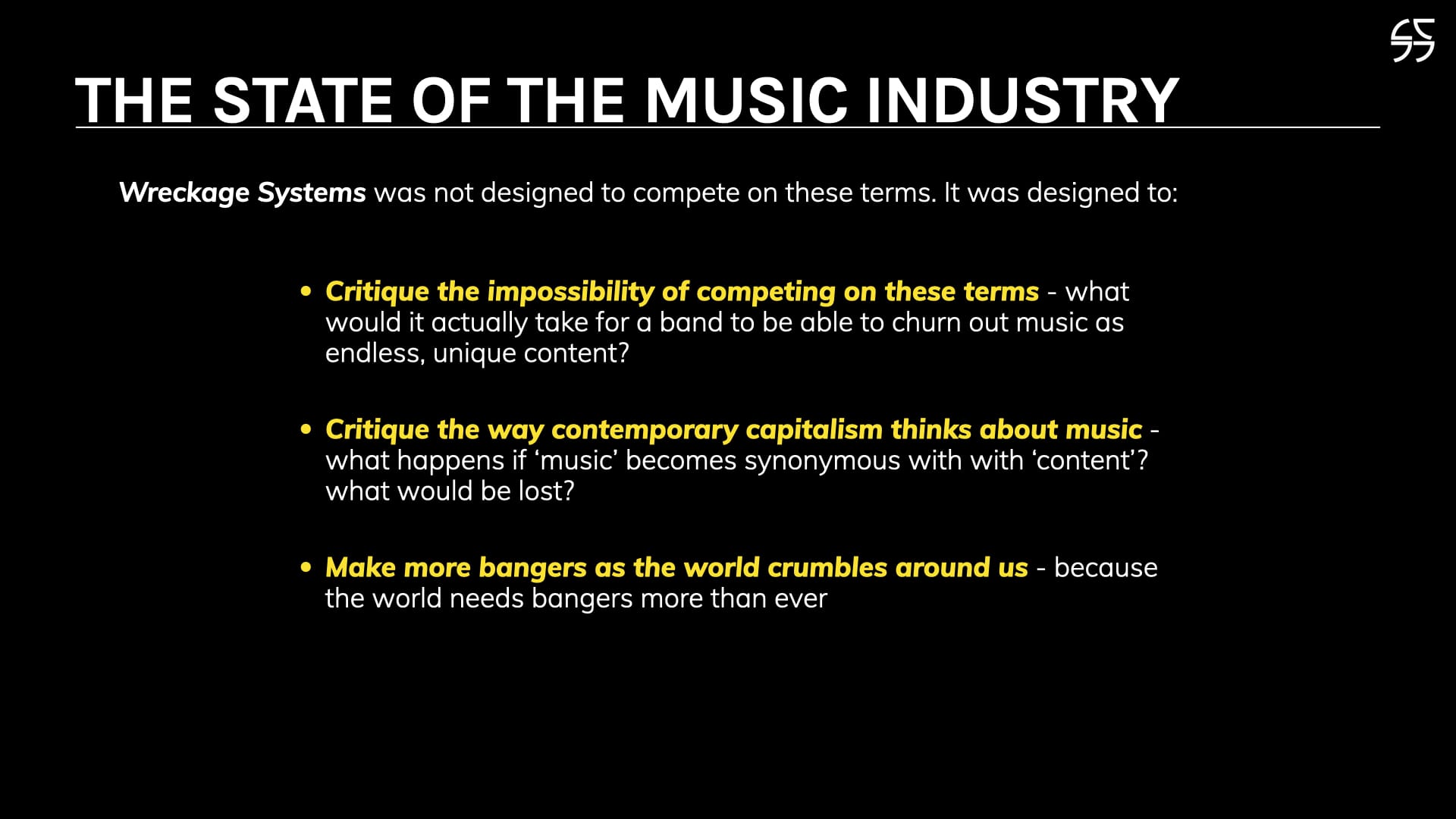
Do the explanations on this slide involve a little bit of reverse-engineering? I don't know. I think that would be an uncharitable reading. Sure, our intentions when prototyping Wreckage Systems were not as articulate as this slide suggests, but it was the process of making Wreckage Systems that helped us figure out what our intentions were. This is what making things does! This is why 'the process' is a non-optional part when it comes to creative expression! This is one of the many things that generative AI evangelists, who insist that you can 'create art' with a prompt and a push of a button, do not understand!
Speaking of generative AI:
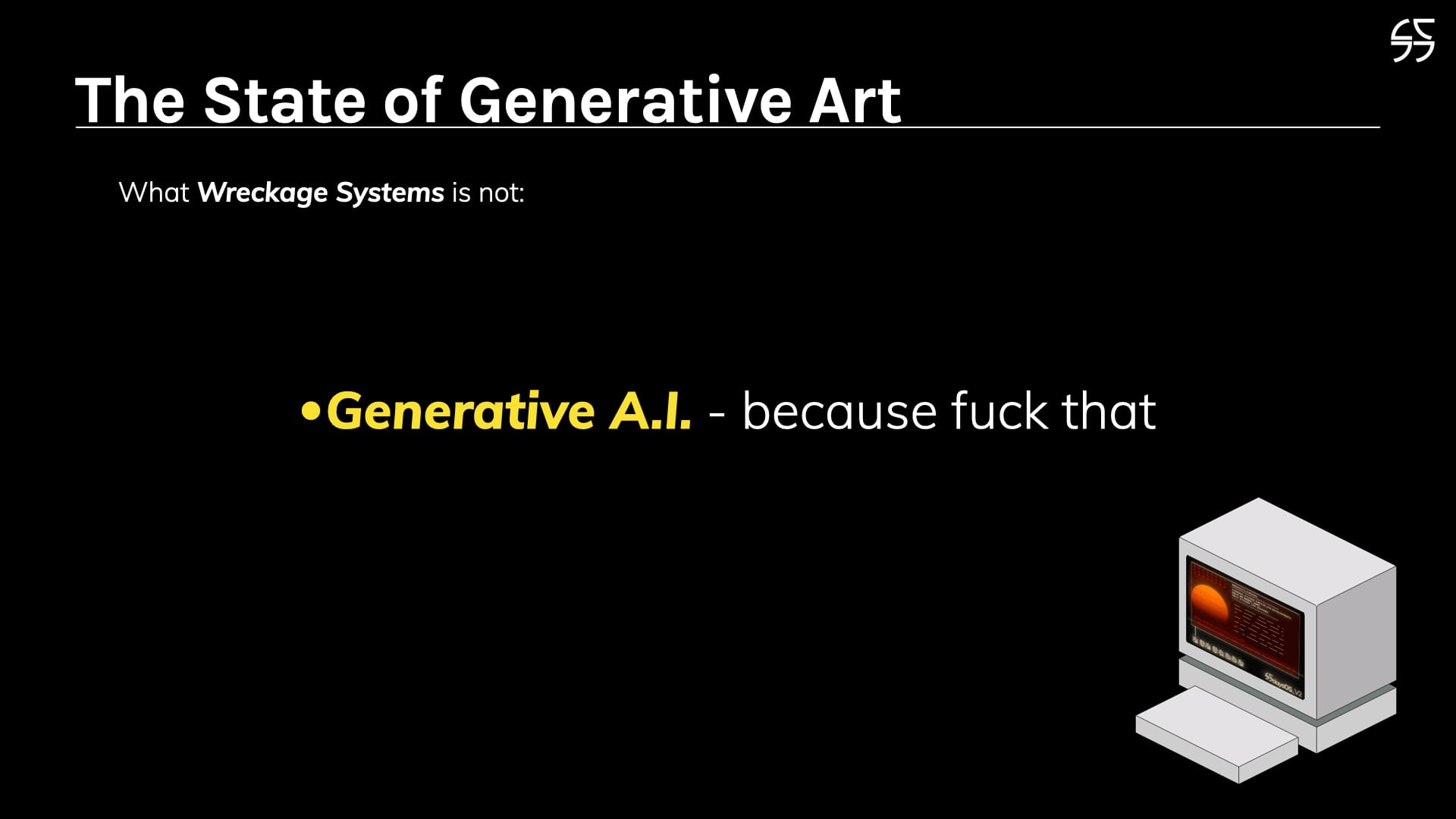
And also:
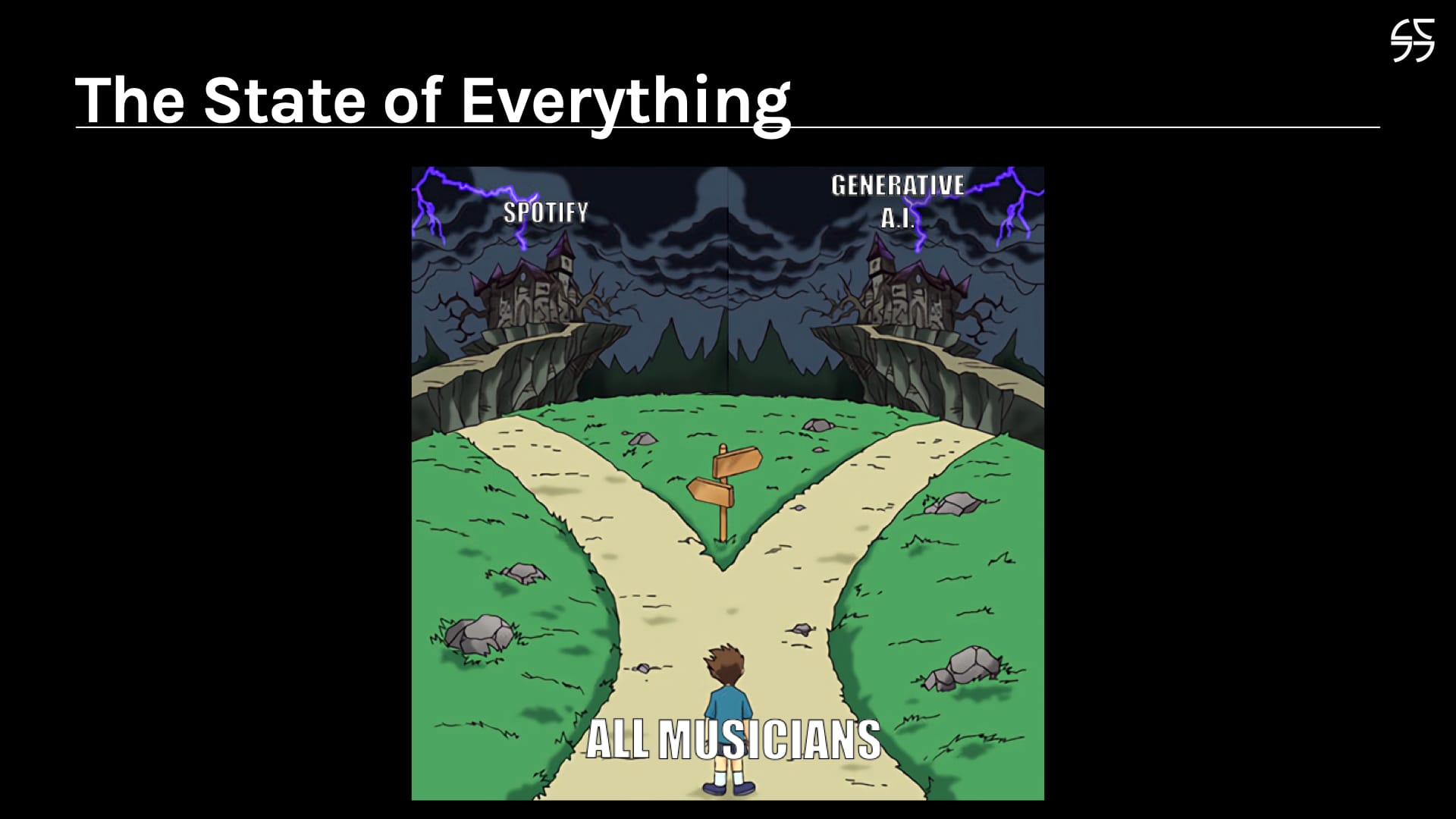
Choose your own adventure. More classic 65daysofstatic cheeriness. You're welcome.
Later on I did explain how some of the systems in Wreckage Systems actually work. Here's one about a system called The MIDI Thief:
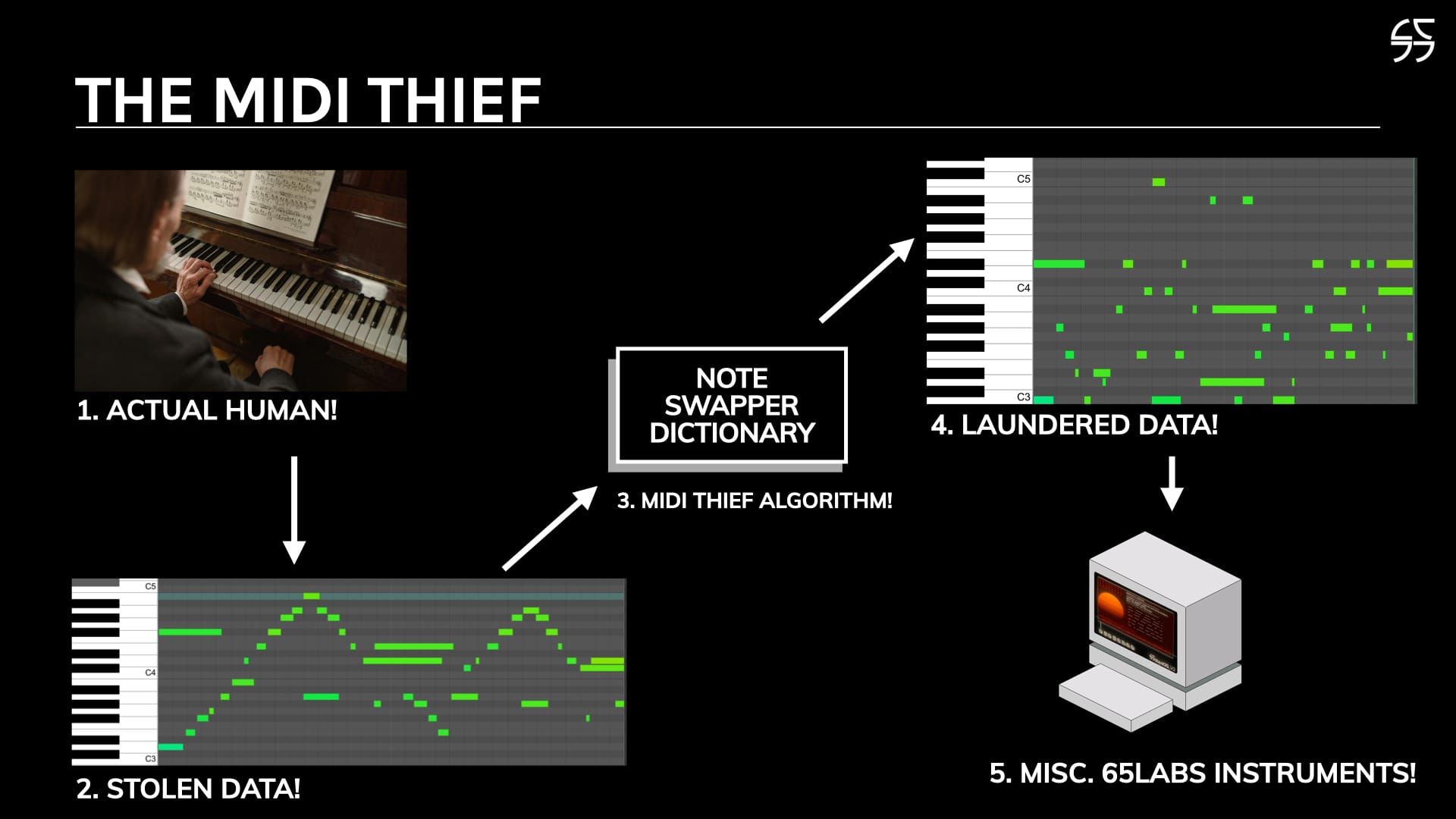
The full story behind what this means is presumably documented somewhere or other in the Wreckage Systems devblogs.
The talk seemed to go down ok. I played a show later too that seemed to be enjoyed by those in attendance. Happily not a single piece of equipment crashed or exploded. I got to try out a fair bit of new material too.
The next morning I went to the opening keynote of a session about 'AI Music', because I knew that Tante (anti-fascist/Luddite/comrade/eat-the-rich advocate) was giving one of the keynotes, and I was curious to see how his talk encouraging everybody to burn AI to the ground would be received in a room full of the kinds of people who would willingly choose to go to a conference about AI Music.
Happily, not only was it a great talk, the audience seemed to be instinctly onside, if the applause was anything to go by. Who seemed less onboard were the various other besuited speakers, and after Tante finished I found myself trapped for an interminable amount of time while music copyright bureaucrats trundled on about artists rights whilst accepting AI as an inevitabilty because (and one of them really said this), they think that people are generally lazy and will cut corners so, of course AI is going to be everywhere in music, so we'd best be responsible adults and draw up some laws about it. It seems like us plebs can't be trusted with these kinds of decisions. It is up to the benevolent neoliberal lawyers to save us from ourselves not by banning or restricting AI companies—let's not get too radical! We don't want to hamper technological progress!—but by negotiating with them so that musicians earn €0.00002 per million streams of AI slop that was trained on their music. Or something. I don't know. I was mostly thinking about sandwiches by this point.
Here's a good Tante slide though. Check out his work/writing if you're after a reliably-Luddite voice in this dumbest of timelines.
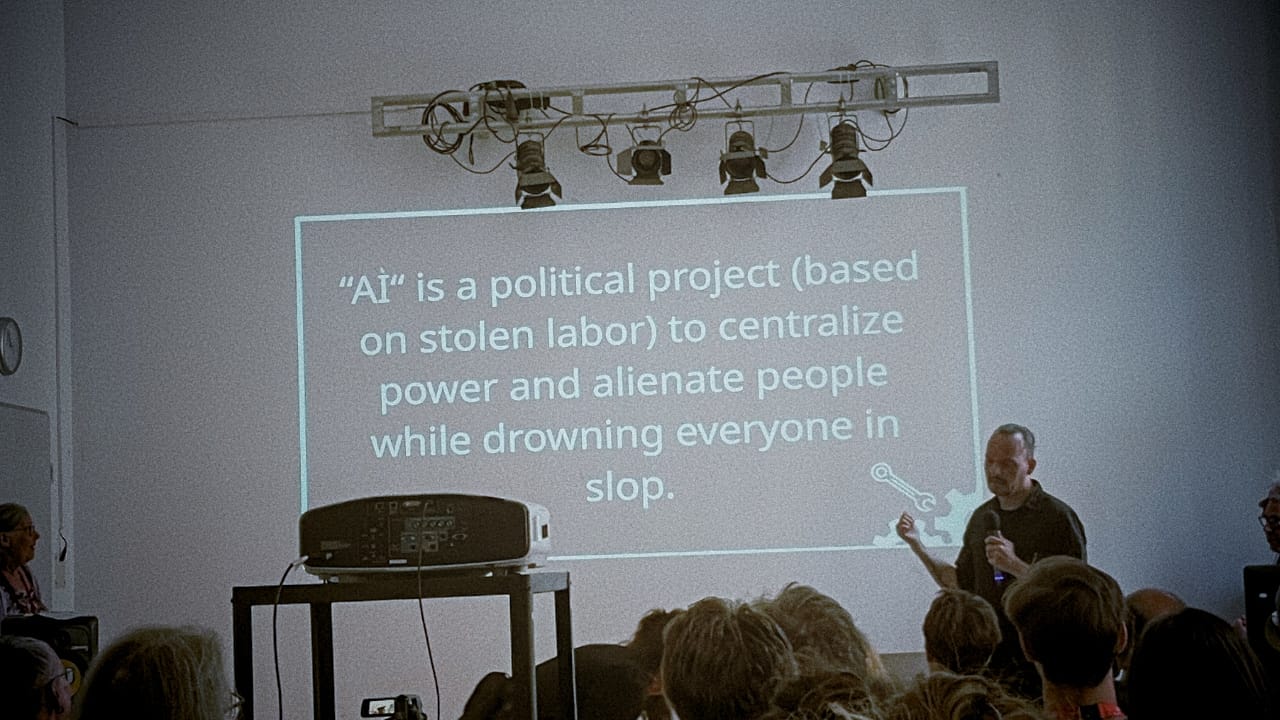
And that was it.
That book on Spotify is a strong recommend from me, no matter your relationship to music. Apart from a slightly dry opening chapter of some historical scene-setting, it is on fire. For years now Bruce Sterling has been reciting his mantra 'what happens to musicians will happen to everybody'. I think his general argument is along the lines of: music has always been on a particular kind of frontline in terms of social and cultural impact, and so it is also on the frontline when it comes to ways in which capitalist, technological and 'progressive' forces try to appropriate/mould/subsume art and culture in any number of ways. It has always felt like a pretty solid hypothesis to me, although since I belong to both categories of 'musician' and 'everyone' I cannot say for sure.
Either way, as this book makes clear, Spotify isn't just happening to musicians, it is absolutely happening to everyone. It is changing and flattening culture and it is making us all complicit. And it hates us all. So at the very, very least, we should hate it back.

Member discussion